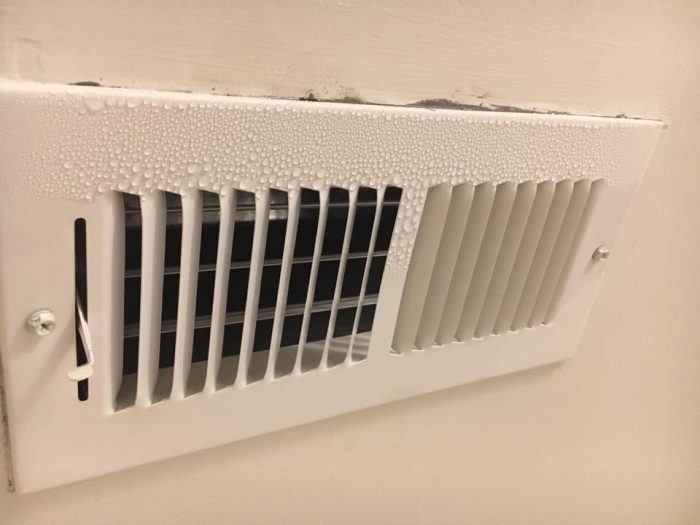Get Tech Tips
Subscribe to free tech tips.
The Diagnosis Game (and Why Van Sleeping Bothers Me)

The Sleeper
The year was 2002, and I was 20 years old. I had a helper named Clay, and he was a really nice guy, probably 15 years my senior, already with streaks of grey in his hair with a way of making you feel at ease—so very at ease.
OK, he was sleeping most of the time.
He fell asleep in my van between most calls and even fell asleep in a company meeting leaning against a condenser box.
Now, maybe Clay was a narcoleptic and I'm just being judgmental, or maybe he was staying up all night doing superhero work. But I think the guy just liked to grab a few—or MANY—winks.
It didn't really bother me much when Clay would sleep; I could tell he wasn't learning much and didn't care much, but he was a pleasant sort of guy, and I didn't hire or manage him, so it really wasn't my problem.
Nowadays, I employ and train lots of people, and now it is my problem. Trainees who sleep in vans DRIVE ME CRAZY! Instead of focusing on my evil capitalist anti-sleep, judgy ways right off, let's ease into the subject with some more trainee tales and see if you can catch a thread of commonality.
The Nasty Dudes
When I was a helper, I rode with a few old techs that took it as their life mission to teach me all about every possible nasty thing they could pump into my mind. I started in the trade at 17, home-schooled, wide-eyed, and as sheltered a Christian kid as you can get (almost). These guys started using words and pushing mental images I didn't even understand at first.
Once I got into my own van, I was glad to have a break from it—until I started getting trainees. I had three guys that rode with me that I remember in particular who ONLY wanted to talk about what they did, saw, or thought about last night. One of them used to be a “tech” (used loosely) in Miami, and if I took him at his word, he slept with 120% of the occupants of South Florida. Needless to say, the fantasy game is strong with most of these guys, and I didn't take a word they said seriously.
Does it shock you that none of them worked out as techs?
The Phone Lookers
I'm thankful that I started in the trade during a time of radio dispatch before cell phones were popular, even before Nextel chatter became a thing (remember Nextel?). Back then, our favorite entertainment was listening to little dispatch dramas and techs helping one another with diagnosis.
Nowadays, many helpers, trainees, apprentices, and techs alike turn to their phones for entertainment between calls. If you have had a young person working with you who was on their phone all the time, how did that work out for them?
The Random Guesser
I once rode with a guy who would guess the next problem before we got there.
“This one is gonna be a coil leak,” he would state confidently.
This was before detailed, web-based job histories were a thing, so it was really just a total guess based on the type of equipment common in a particular community.
He actually wasn't a bad tech, and this was just his way of entertaining himself, but his method of pre-diagnostic guessing was all based on the dreaded “I've seen that before,” not a solid diagnostic approach based on observation and measurement.
The common thread? All of these techs were busy engaging (or disengaging) their minds in things that weren't making them better at their jobs.
The Diagnosis Game

There were a few techs who really taught me. This teaching often happened on the drives between calls, and it came in four flavors:
- Discussing what and why we did what we did at the last call
- Explaining technical concepts and practices I was struggling with
- Talking through strange diagnostic issues they had experienced in the past
- The diagnosis game
Different people do the diagnosis game differently and probably also call it different things (some of you may not be comfortable with “games” at work), but it has some common elements and is designed to challenge the helper to think and imagine their way through a diagnostic scenario.
Here is how I do it:
Me: Ok, I've got one
Trainee: You've got one what?
Me: I've got a diagnosis for you
Trainee: OK, what is it?
Me: I'm a service call, so you can ask me questions as the customer or choose to check various things and ask me the findings until you make a diagnosis
Trainee: OK, so what's the suction pressure?
Me: Is that how you start a service call? You come to a screeching halt in front of the home, hop out, and check the suction pressure?
Trainee: No…
Me: Ok, so what do you do first?
Trainee: Check the thermostat, I guess.
Me: So you come to a screeching halt, jump out, slam open the customer's door, and start checking their thermostat?
Trainee: (rolling eyes) No… I guess I talk to the customer.
And I just keep going and going and going like this, picking on every detail of the call and diagnosis process they use, detail by detail, until they gather enough information to make a diagnosis.
Along the way, they will inevitably say something like –
Trainee: Is it a bad capacitor?
Me: Can you ask an air conditioner question?
Trainee: No.
Me: I only answer yes or no questions about observable facts, provide you tool readings, or answer questions as the homeowner.
Trainee: OK, does the contactor have power?
Me: What does that mean?
Trainee: Is there power going into the contactor?
Me: What is power?
Trainee: Is there VOLTAGE at the CONTACTOR!
Me: Where at the contactor?
Trainee: The HIGH VOLTAGE!
Me: Measured with what?
Trainee: MY METER!
Me: What setting on your meter?
Trainee: VOLTAGE!
Me: OK, Where are the leads placed
Trainee: Across the bottom of the contactor, I guess?
Me: Don't guess. What is the bottom side called?
Some of you are reading this and getting annoyed, thinking I'm a pedantic nerd who just likes to antagonize helpers (which is somewhat true, I will admit). Some guys hate this at first, but they usually come to enjoy it EVENTUALLY, and it teaches imagination, reasoning, and precise language.
Along the way, you can throw in little scenarios where they die or get injured because they forget to double-check their meter to a known power supply or fail to wear PPE, etc.
Yes, it's a little dramatic, but the human brain is hardwired for story and competition, and the diagnosis game uses both of these human traits to help teach HVAC/R. It is better than classroom training because they get to apply and test what they are learning as they think about it; it works best if they actually think you are wrong on something and have to come up with proofs or experiments to try and prove you wrong.
So, I posted on social media a few weeks ago about how I don't like it when trainees sleep in the vans, and I got pretty well roasted for being a judgmental sleep hater, and after all, “What do I expect trainees to do while riding along?”
I expect nothing.
One of my political heroes (who will remain unnamed) was once asked how he kept his sanity working in DC with so much corruption and lunacy. He responded:
It's simple, I've just learned to have low expectations.
While I fully expect trainees to fall asleep, look at their phones, guess at diagnosis, fail to read manuals, and share inflated escapade stories, my STANDARD is that they will actually engage their brains and learn about HVAC/R (and hopefully some life lessons) when they work with me. This is a process, and the diagnosis game is one of my favorite tools to get them there.

I firmly believe that anyone who really wants to learn this trade can become usefully proficient much faster than most think possible if they just spend their workday engaged rather than relying on osmosis to fill their brains with experience.
Many of us learned this business because we really had no choice but to make it work, and necessity forced us to turn on our minds and make it happen. Some of the people who train with you may not have those pressures or influences in their lives that require them to be on the ball.
You don't need to be a jerk to hold new people to a high standard; I would suggest step one is to have low expectations, and step two is to start requiring more of their attention during drives investing in them and bringing them up to your standard.
And trainees, don't sleep in the van or stare mindlessly at your phone. Trust me.
—Bryan










Comments
I love this – I will do the same with my team. Thanks Bryan!
I love this – I will do the same with my team. Thanks Bryan!
http://kamagraprix.com/# kamagra oral jelly
http://kamagraprix.com/# kamagra oral jelly
Pharmacie Internationale en ligne acheter mГ©dicament en ligne sans ordonnance or pharmacie en ligne france fiable
https://cse.google.td/url?sa=t&url=https://pharmafst.com Pharmacie en ligne livraison Europe
[url=http://www.vinfo.ru/away.php?url=http://pharmafst.com]pharmacie en ligne france fiable[/url] pharmacie en ligne sans ordonnance and [url=https://www.support-groups.org/memberlist.php?mode=viewprofile&u=359825]pharmacies en ligne certifiГ©es[/url] Achat mГ©dicament en ligne fiable
Pharmacie Internationale en ligne acheter mГ©dicament en ligne sans ordonnance or pharmacie en ligne france fiable
https://cse.google.td/url?sa=t&url=https://pharmafst.com Pharmacie en ligne livraison Europe
[url=http://www.vinfo.ru/away.php?url=http://pharmafst.com]pharmacie en ligne france fiable[/url] pharmacie en ligne sans ordonnance and [url=https://www.support-groups.org/memberlist.php?mode=viewprofile&u=359825]pharmacies en ligne certifiГ©es[/url] Achat mГ©dicament en ligne fiable
http://pharmafst.com/# pharmacie en ligne avec ordonnance
http://pharmafst.com/# pharmacie en ligne avec ordonnance
pharmacies en ligne certifiГ©es: Pharmacie en ligne France – Pharmacie en ligne livraison Europe pharmafst.com
pharmacies en ligne certifiГ©es: Pharmacie en ligne France – Pharmacie en ligne livraison Europe pharmafst.com
Pharmacie en ligne Cialis sans ordonnance: Acheter Cialis – Acheter Viagra Cialis sans ordonnance tadalmed.shop
Pharmacie en ligne Cialis sans ordonnance: Acheter Cialis – Acheter Viagra Cialis sans ordonnance tadalmed.shop
kamagra pas cher: kamagra oral jelly – kamagra 100mg prix
kamagra pas cher: kamagra oral jelly – kamagra 100mg prix
http://tadalmed.com/# Pharmacie en ligne Cialis sans ordonnance
http://tadalmed.com/# Pharmacie en ligne Cialis sans ordonnance
olympe casino: olympe casino – olympe casino en ligne
olympe casino: olympe casino – olympe casino en ligne
Thanks for sharing, I enjoyed reading your article. I am new to the trade and was thrown to the wolves, so your content has helped me tremendously.
Thanks for sharing, I enjoyed reading your article. I am new to the trade and was thrown to the wolves, so your content has helped me tremendously.
kamagra pas cher: kamagra en ligne – kamagra gel
kamagra pas cher: kamagra en ligne – kamagra gel
To leave a comment, you need to log in.
Log In